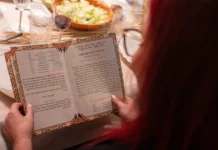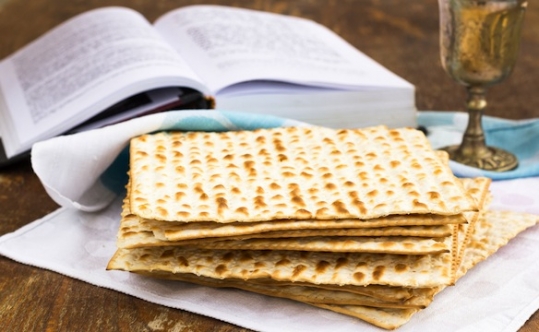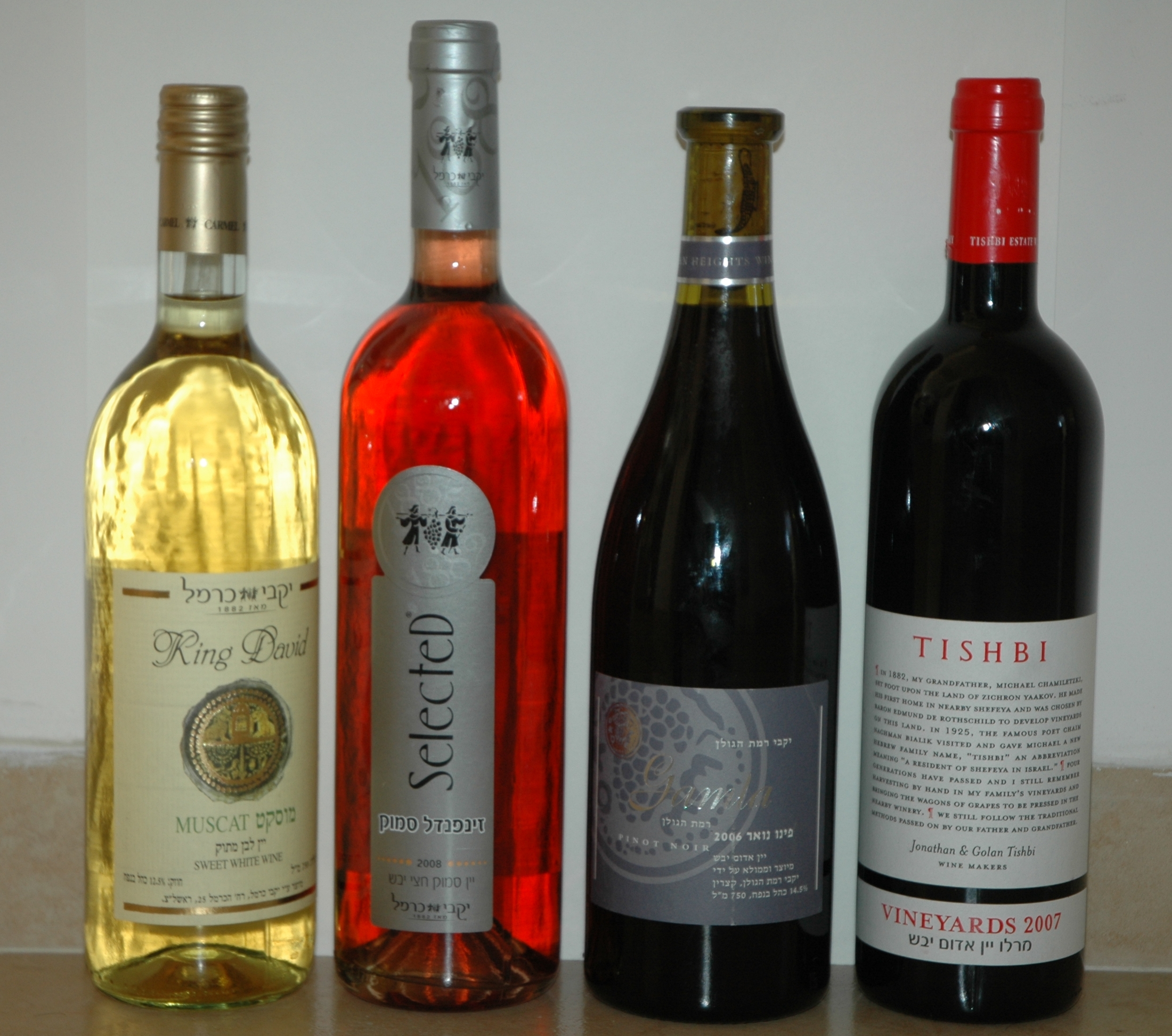Yiddish In 10 Lessons!! Give the Gift of Continuity!!
A Great Present All Year Long!!
Stay Connected To The Jewish Culture Through YIDDISH!!
וואָס בּײַ אַ ניכטערן אויפן לונג איז בּײַ אַ שיכּור אויפן צונג
transliterated
vos by a nikh'tern afn lung, iz ba a shiker afn tsung the proverb actually means
that which is in a sober person's lung, is on a drunk person's tongue
(a drunk persons words are a sober persons thoughts)
translated to Hebrew
מה שיש למפוכח בַּרֵיאוֹת יש לשיכור על הלשון
עס וועט אַזוי לאַנג געדויערן פון תּענית אסתר בּיז פּורים transliterated es vet a'zoi laang ge'doi'rn fin tie'nes Ester biz Purim in English
this (item or resolution or agreement) will last from the Fast of Esther until Purim (a day apart – not giving it much hope)
in Hebrew
זה יחזיק מעמד מתענית אסתר עד פורים
בּיז צום קרעטשמע דאַרף מען אויך אַ טרינק
transliterated
biz tsum kretshme darf men oykh a trink
in English
on the way to the tavern one too needs a drink
ס'איז נישט אַזוי פון אהבת מרדכי ווי ס'איז פון שנאת המן transliterated iz nit azoy fun ahavas mordekhay vi s'iz fun sinas homon in English he didn't do it for his love of Mordechai as much as for his hate of Haman
in Hebrew
זה לא כל כך מאהבת מרדכי כמו משנאת המן
another saying
בּײַם גלעזל געפינט מען אַ סאַך גוטע פרײַנד
transliterated
bam glezl gefint men a sakh gu'te fraynd
in English
by the shot-glass you find many good friends (everyone becomes your friend for a drink)
in Hebrew
בכוסית מוצאים הרבה ידידים
זאָלסט האָבּן אסתּר המלכּה'ס חן
transliterated
zolst hobn ester hamalk’s kheyn
in English
you should have Queen Esthers charm
in Hebrew
שתהיה לך החן של אסתר המלכה
אַ קראַנקער וועט געזונט ווערן, אַ שיכּור וועט
זיך אויסניכטערן, אָבּער אַ נאַר בּלײַבּט אַ נאַר transliterated a kranker vet gezunt vern, a shiker vet
zikh oysnikhtern, ober a nar blaybt a nar
in English
the sick will recover, the inebriated will sober up but once a fool always a fool
in Hebrew
חולה יבריא, שיכור יתפכח אבל טיפש ישאר טיפש
ער האָט געשריבּן אַ גאַנצע מגילה
transliterated
er hot geshribn a gantse megi’le
expression means
he wrote a whole megillah (scroll)
(someone that doesn’t get to the point very quickly- goes on and on)
הוא כתב מגילה שלימה
ס‘איז געווען ליהודים
transliterated
s’iz geven layehudim
expression means
’twas very lively
(when things quickly get heated up – becoming chaotic)
in Hebrew
היה שם ל‘יהודים‘ (שמח – בלגן וכו‘)
ער זאָגט דאָס אין איין אָטעם אַזוי ווי די עשרת בּני המן
transliterated
er zogt es in eyn otem azoy vi di aseres beney homon
in English
he says it in one breath like the ten sons of Haman*
(used when one does not come up for air – just keeps on talking)
in Hebrew
אמר את כל זה בנשימה אחת כמו עשרת בני המן
נישט אַלע פּורים טרעפט זיך אַ נס
transliterated
nit a’le purim treft zikh a nes
in English
not every Purim a miracle happens
in Hebrew
לא כל פורים קורה נס
נישט אַלע טאָג איז פּורים
transliterated
nit a’le tog iz purem
in English
not every day is Purim
in Hebrew
לא כל יום פורים
ער איז אַ ויזתא
transliterated
er iz a vayzoso
in English
he is an idiot (Vayzoso was one of Haman’s children)
in Hebrew
הוא ויזתא (אידיוט)
אַ סך המנ’ס און נאָר איין פּורים
transliterated
a sakh Homons un nor eyn Purim
the saying actually means
there are many Haman’s but only one Purim
translated to Hebrew
ישנם הרבה המנ’ים ורק פורים אחד
אַז יידן רײַסן זיך אַרום איז אַ שמחה בּײַ די המנ’ס
transliterated
az yidn raysn zikh arum iz a simkha ba di Homons
in English
when Jews fight among themselves the Haman’s rejoice
in Hebrew
כשיהודים רבים בינם לבין עצמם ההמנ‘ים שמחים
אַן אַנדער מענטש
מ‘האָט אַמאָל געפרעגט בּײַ איינעם וואָס האָט ליבּ געהאַט ‘דעם בּיטערן טראָפּ‘ “ווי אַזוי קענט איר אַרײַנגיסן אין זיך און דערהאַלטן אַזוי פיל משקה?”
“איך זע אַז איר פאַרשטייט גאָרנישט”, גיט ער אַן ענטפער. “ווען איך גיס אַרײַן אַ כּוס‘עלע ווער איך דאָך אַן אַנדער מענטש, און דער אַנדערער דאַרף דאָך אויך עפּעס נעמען אין מויל אַרײַן…..צווישן אונדז אַלע איז דאָס גאָרנישט אַזוי פיל….”
an ander Mentsh
m’hot amol gefregt ba eynem vos hot lib gehat ‘dem bitern trop’, “vi a’zoy kent ir a’rayngisn im zikh un derhaltn a’zoy fil mashke”?
“ikh ze az ir farshteyt gornit,” git er an entfer. “ven ikh gis a’rayn a koy’se’le ver ikh dokh an ander mentsh, un der anderer darf dokh oykh epes nemen in moyl a’rayn…. tsvishn undz a’le iz dos gornit a’zoy fil…”
a diferent person
a lush was once asked, “how can you consume such a vast amount of alcohol without ill effect”?
“I see that you don’t understand a thing,” he quipped. “when I take a shot, I become a different person, and the other one also needs something to quench his thirst. Between all of us, it’s is not that much…
בן אדם אחר
שאלו פעם אחד שאהב את הטיפה המרה, ”איך אתה יכול להכניס כזה כמות משקה בלי שזה ישפיע עליך?”
“אני רואה שאתה לא מבין כלום,” הוא החזיר. ”עם לגימת כמה כוסיות, אני הופך להיות לבן אדם אחר, והאחר גם הוא צריך כמה לגימות. ואם אתה מחלק את זה בין כלנו אז זה כבר לא כל כך הרבה….”
Purim is a Jewish holiday that commemorates the deliverance of the Jewish people in the ancient Persian Empire from destruction in the wake of a plot by Haman, a story recorded in the Biblical Book of Esther (Megillas Esther).
Purim is celebrated annually according to the Hebrew calender on the 14th day of the Hebrew month of Adar, the day following the victory of the Jews over their enemies. Purim begins at sundown. In cities that were protected by a surrounding wall at the time of Joshua, Purim is celebrated on the 15th of the month; Everywhere else, Purim is on the 14th, while the 15th is known as Shushan Purim. Due to Jerusalem’s importance, it celebrates Purim on the 15th despite it not having been surrounded by a wall since the time of Joshua. This is to prevent less holy cities having an advantage over Jerusalem.
Purim is characterized by public recitation of the Scroll of Esther (Megillah), additions to the prayers and the grace after meals (al hannisim), giving mutual gifts of food and drink (mishloach manot), giving charity to the poor (mattanot la-evyonim),and a celebratory meal (se’udat Purim); other customs include drinking wine, wearing of masks and costumes, and public celebration.
According to the Book of Esther, Haman, royal vizier to King Ahasuerus planned to kill the Jews, but his plans were foiled by Mordechai and Queen Esther. It ended by Haman being hanged with his ten children. The day of deliverance became a day of feasting and rejoicing.
When the names of Haman and his ten sons are read in the Megilla it is read in one breath.
“Yiddish In 10 Lessons”
workbook and CD’s
NOW AVAILABLE
A QUICK AND EASY WAY TO LEARN YIDDISH
אַ פריילעכן פּורים
Chaim Werdyger
Bringing back the Yiddish language
A proverb is a short, generally known sentence of the folk which contains wisdom, truth, morals, and traditional views in a metaphorical, fixed and memorizable form and which is handed down from generation to generation




























